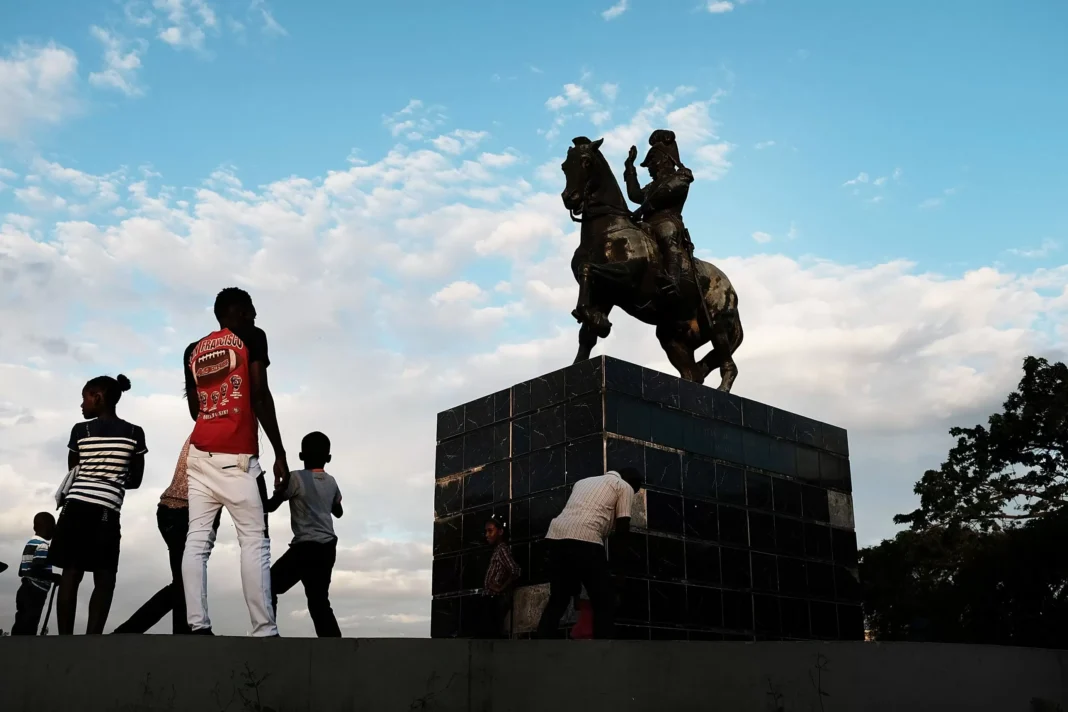The story of Haiti is one of resilience, courage, and determination. It is a story of a nation that fought against all odds to gain its freedom and became the first country in Latin America to do so. But what makes Haiti’s journey to independence even more remarkable is that it was achieved through a slave revolt, making it the only country in the world to have done so. This is the incredible tale of Haiti’s struggle for freedom, and it is the focus of Episode 64 of Stories of Resistance.
Haiti, known as the Pearl of the Antilles, was once a French colony known as Saint-Domingue. It was the wealthiest colony in the Caribbean, producing vast amounts of sugar, coffee, and other valuable commodities. However, this wealth came at a great cost – the exploitation and mistreatment of enslaved Africans who were brought to the island to work on the plantations.
Life for the enslaved population in Haiti was brutal and inhumane. They were forced to work long hours in harsh conditions, with no rights or freedoms. They were treated as property, bought and sold like commodities, and subjected to unimaginable cruelty. But despite the oppression, the enslaved population of Haiti never gave up hope for a better future.
In 1791, a group of enslaved Africans, led by Toussaint L’Ouverture, rose up against their oppressors and began a revolution that would change the course of history. This marked the beginning of the Haitian Revolution – a 13-year-long struggle for freedom and independence.
The Haitian Revolution was a bloody and brutal conflict, with both sides committing atrocities. But the enslaved population, fueled by their desire for freedom, fought with unwavering determination. They were aided by the geography of the island, which made it difficult for the French to maintain control, and by the leadership of Toussaint L’Ouverture, who was a skilled military strategist.
Despite facing many challenges, the revolutionaries were able to defeat the French forces and gain control of the island. In 1804, after years of fighting, Haiti declared its independence, becoming the first country in Latin America to do so. This was a momentous achievement, not only for Haiti but for all enslaved people around the world.
The Haitian Revolution and the country’s subsequent independence were significant events in world history. It showed that a small, oppressed nation could stand up against a powerful colonial power and emerge victorious. It also shattered the myth of white supremacy, as the enslaved population of Haiti proved that they were just as capable and deserving of freedom as anyone else.
However, Haiti’s journey to independence did not end with the revolution. The country faced many challenges, including political instability, economic struggles, and foreign intervention. But despite these difficulties, Haiti has continued to persevere and maintain its independence for over 200 years.
Today, Haiti is still a country that is fighting against adversity. It has faced natural disasters, such as the devastating earthquake in 2010, and is currently dealing with political unrest and economic challenges. But through it all, the spirit of resistance and determination that led to its independence continues to live on in the Haitian people.
The story of Haiti’s struggle for freedom and independence is one that should be celebrated and remembered. It is a story of courage, perseverance, and triumph against all odds. And it serves as a reminder to us all that no matter how difficult the circumstances may be, we should never give up hope for a better future.
In conclusion, Haiti’s journey to independence through a slave revolt is a remarkable and inspiring tale. It is a testament to the strength and resilience of the human spirit and a reminder that freedom is a fundamental right that should be fought for and cherished. Let us honor the brave men and women who sacrificed everything for the freedom of their nation and continue to celebrate Haiti’s rich history and culture.


